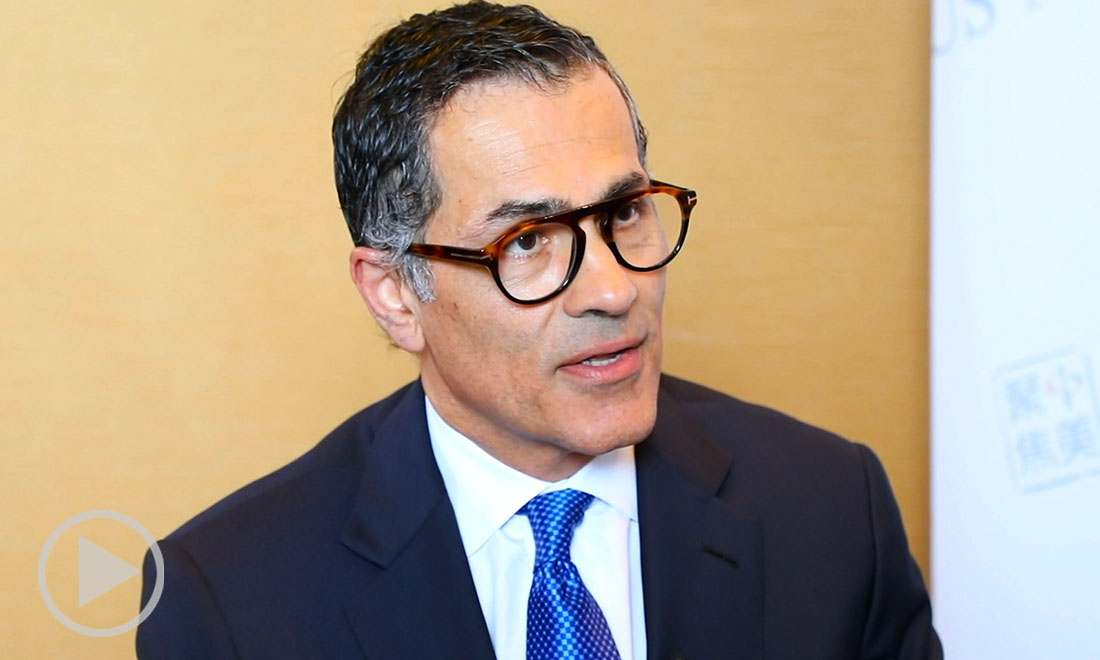
If diplomacy with Iran’s Islamofascist regime is tantamount to appeasing it, look no further for its theoretician than Vali Nasr. In late 2019, Nasr endorsed Democratic candidate Pete Buttigieg for president. It is unclear whether or not Buttigieg has officially commissioned Nasr as his foreign policy advisor, but Nasr’s break with Bernie Sanders as his foreign policy advisor and endorsing Buttigieg instead was peculiar.
Nasr stepped down in June 2019 as the Dean for Johns Hopkins University’s School of Advanced International Studies after a seven-year tenure. It is not clear if his resignation was voluntary. In 2009, he was appointed as senior advisor to special envoy for Afghanistan and Pakistan Ambassador for Richard Holbrooke. He left that position in 2011 ostensibly due to disagreements with the Obama administration over its Afghanistan policies. In 2013, he wrote an article sharply criticizing the Obama administration, stating, “my time in the Obama administration turned out to be a deeply disillusioning experience.” Sometime after Donald Trump’s election, he joined Sanders’ foreign policy team.
Nasr’s philosophy in dealing with the Iranian regime is interesting. Iranian-American columnist and editor Sohrab Ahmari wrote in 2013, “a close examination of Nasr’s work reveals him to be the progenitor or key amplifier of some of the most persistent myths that in recent years have distorted US. policy toward Iran.” The narrative that Nasr promulgated via his books and articles was that the Iranian regime is a powerful player in the region and hence, the US must resign to and accommodate its hegemonic ambitions. Nasr describes in his 2006 book The Shia Revival, invasion of Iraq and toppling of its Sunni dictator Saddam Hussein, cleared the way for Shia insurgency. To Nasr, this is a natural rejoinder and should be allowed to run its course until chaos in the region reaches a steady state of equilibrium and new order. What Nasr did not predict was that Shia domination would usher in rampant sectarian violence and ultimately lead to a retaliatory Sunni counterpart, the Islamic State. This was a failure on Nasr’s part to recognize the consequences of Shia hegemony.
Another narrative that Nasr incessantly advances is the fraudulent dichotomy of “moderates versus hardliners” in Iran. Nasr seems to believe the existence and control of Islamic fundamentalists – which he calls hardliners – in Iran is a product of egregious US policies. In 2018 he wrote, “Trump’s tactics will likely embolden hardliners in Tehran, who will see an opportunity to sideline rivals tainted by an association with the US.” This disingenuous storyline describing the mythical duality of hardliners versus moderates has become a common rhetoric among pro-regime “Iran experts.” It was the narrative used by pro-regime elements to lure the Obama Administration into agreeing with the nuclear deal. Nasr views Hassan Rouhani’s re-election in 2017 –which happened during the Trump presidency – as a referendum on the nuclear deal. In other words, the enactment of the deal was the main reason for Rouhani’s “landslide” victory because the Iranian people agreed that the deal was somehow beneficial. Subsequently, Nasr urges the Trump administration to engage with the regime because, according to his belief, that is what the Iranian people want.
These so-called policy directives were, of course, issued before widespread anti-regime protests erupted in Iran on several occasions with increasing intensity over the past two years. One of the most common slogans the Iranian people chanted and continue to do so during protests is, “Reformist! Principalist! The saga is over,” suggesting they see no difference between the two factions that Nasr calls moderates and hardliners. Therefore, Nasr’s theory regarding Iran’s sociopolitical dynamics is also rejected.
Nasr has also been wrong about Syria. In a 2015 article titled, Only Russia Can Bring Peace to Syria, he wrote, “The United States has from the outset been reluctant to get involved in the Syrian debacle. Its support for opposition to Assad has been ineffective and so have its attempts at finding a diplomatic solution. By contrast, or perhaps as a consequence, there is now recognition across the board that Russia is central to an end game in Syria.” Off course, no diplomatic solution formulated by Russia ever materialized and the United States did get militarily involved in Syria. Nasr’s most appalling distortion, however, has been claims regarding IRGC’s role in Syria and Iraq. He asserts the IRGC’s objective in Syria and Iraq was to protect Shia holy shrines and the Iranian people are on the same page and consider this unlawful occupation justified. This contention by Nasr was also invalidated when during the Iran protests, people chanted across the nation, “Leave Syria alone, think about us.”
Nasr’s ideas and proposals have a high tendency of being controverted. They are partial, subjective, and for the most part, self-fulfilling prophecies. His theories on Iran’s society do not reflect the sentiments of the Iranian people. His interpretation of Iran’s political atmosphere and predictions on the regime’s behavior are skewed and biased. Democratic presidential hopefuls should be cautious as to whom they select as their foreign policy advisers, or else they risk being thrust into the dark Vali.













Join the conversation as a VIP Member